
Tutorial Transformer - Instructional Design AI
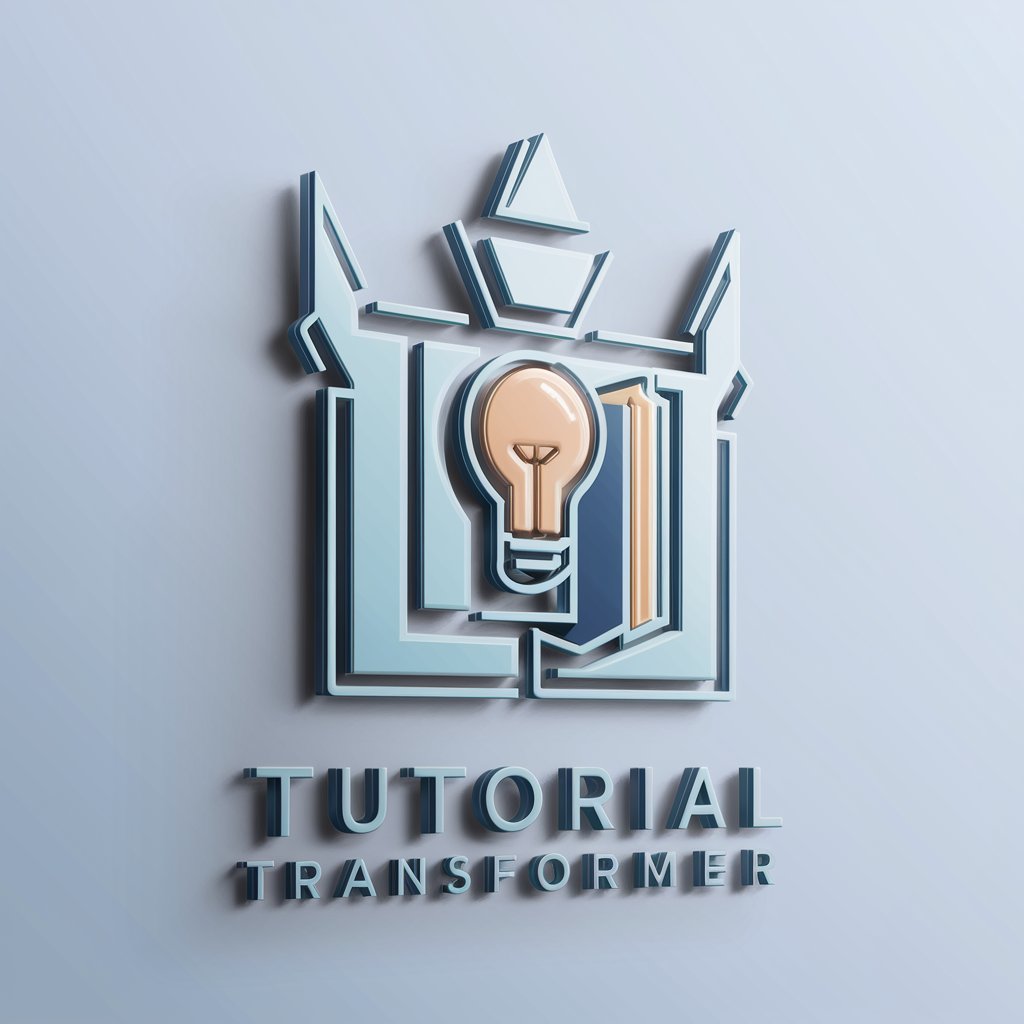
Welcome to the Tutorial Transformer, your AI instructional design assistant.
Empowering Instructional Design with AI
Generate a detailed content outline for a course on...
Develop a VoiceOver script for the following learning objectives...
Create formative assessments for a module on...
Suggest interactive activities to enhance learner engagement in...
Get Embed Code
Overview of Tutorial Transformer
Tutorial Transformer is a specialized AI designed to assist in the creation and structuring of educational content. It synthesizes instructional design principles with AI capabilities to generate detailed content outlines, develop instructional materials, and design assessments. Its design purpose is to optimize the instructional design process, making it more efficient and effective by leveraging AI's ability to analyze, organize, and create educational content. For example, it can take a complex topic, such as 'Introduction to Programming,' break it down into manageable subtopics (variables, control structures, functions, etc.), and suggest a variety of instructional strategies tailored to the learner's needs, such as active learning exercises, quizzes, and interactive simulations. Powered by ChatGPT-4o。

Core Functions of Tutorial Transformer
Creating Detailed Content Outlines
Example
Analyzing a raw transcript on cloud computing and organizing it into a structured outline with headings like 'What is Cloud Computing?', 'Types of Cloud Services', and 'Implementing Cloud Infrastructure'.
Scenario
An instructional designer is tasked with creating a course on cloud computing but is overwhelmed by the breadth of content. Tutorial Transformer analyzes provided materials to create a structured, logical outline, saving the designer significant time and ensuring comprehensive coverage.
Developing Instructional Content
Example
Transforming a content outline into a series of engaging video scripts, complete with suggestions for on-screen visuals and interactive elements.
Scenario
A corporate trainer needs to develop a series of training videos on cybersecurity practices. Using Tutorial Transformer, they input their content outline, receiving back a series of scripts and visual suggestions that make complex topics accessible and engaging.
Designing Assessments
Example
Creating a set of quiz questions and practical exercises to assess learners' understanding of JavaScript basics.
Scenario
An e-learning developer is creating an introductory JavaScript course and needs to include assessments. Tutorial Transformer suggests a variety of question types and practical exercises, ensuring the assessments are comprehensive and aligned with learning objectives.
Recommending Supplemental Materials
Example
Suggesting additional resources such as case studies, articles, and tutorials to complement a course on project management methodologies.
Scenario
A project management instructor wants to enrich their course with external resources. Tutorial Transformer identifies and recommends high-quality, relevant supplemental materials, enhancing the learning experience.
Who Can Benefit from Tutorial Transformer?
Instructional Designers
Professionals tasked with developing educational programs and materials. They benefit from Tutorial Transformer by streamlining the content development process, ensuring educational materials are structured effectively, and aligning with instructional design best practices.
Corporate Trainers
Individuals responsible for training employees on new skills and procedures. Tutorial Transformer aids them in creating engaging, effective training materials quickly, allowing for more dynamic and responsive training programs.
E-Learning Developers
Creators of online courses and educational platforms. They leverage Tutorial Transformer to design interactive and engaging e-learning content that is pedagogically sound and tailored to their audience's needs.
Educators
Teachers and professors seeking to integrate technology and innovative teaching strategies into their classrooms. Tutorial Transformer offers them tools to create supplemental materials and interactive lessons that enhance student engagement and learning outcomes.

How to Use Tutorial Transformer
1
Access a free trial effortlessly by visiting yeschat.ai, where no sign-in or ChatGPT Plus subscription is necessary.
2
Choose the specific instructional design task you need assistance with, such as content outline creation, voiceover scripting, or assessment design.
3
Input your raw content, transcripts, or learning objectives, specifying the context and your target audience for more tailored assistance.
4
Utilize the generated content or guidance, refining it based on your specific needs and the feedback you receive from the tool.
5
Iterate on the design process, leveraging Tutorial Transformer's suggestions to enhance your educational materials' effectiveness and engagement.
Try other advanced and practical GPTs
UGC Assistant
Empowering Your Creativity with AI
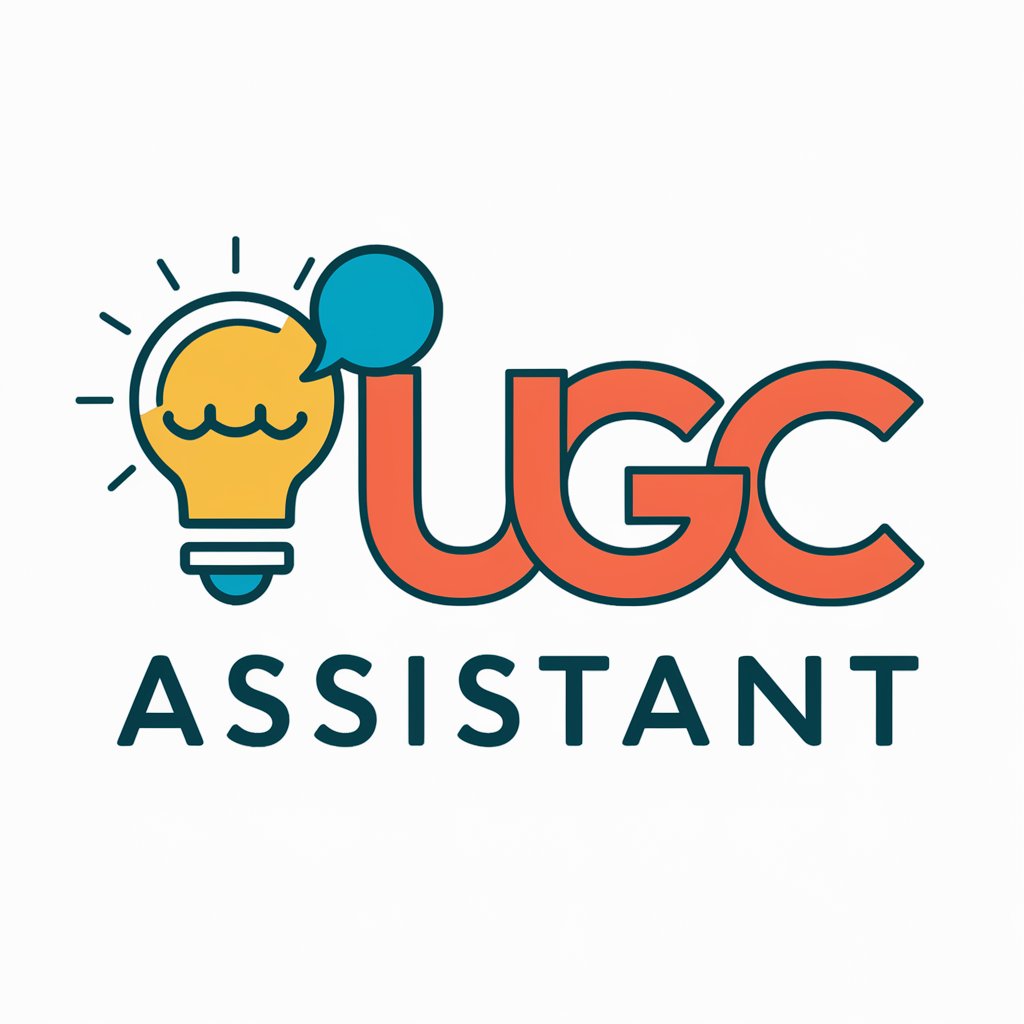
Visual Script Wizard
Transform slides into compelling scripts.
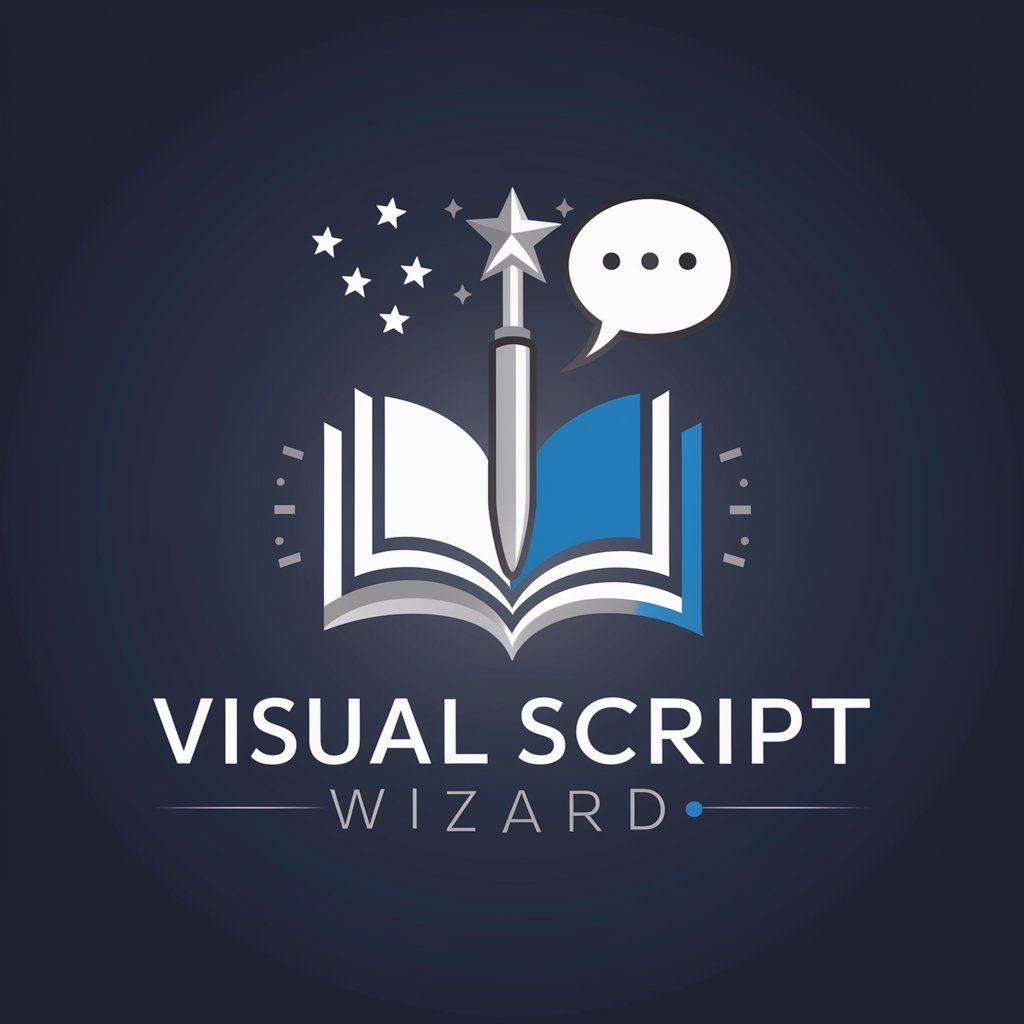
Owasp Top 10 Analyst
AI-powered Web Security Insights

Fun Mode
Unlock Humor with AI Insights
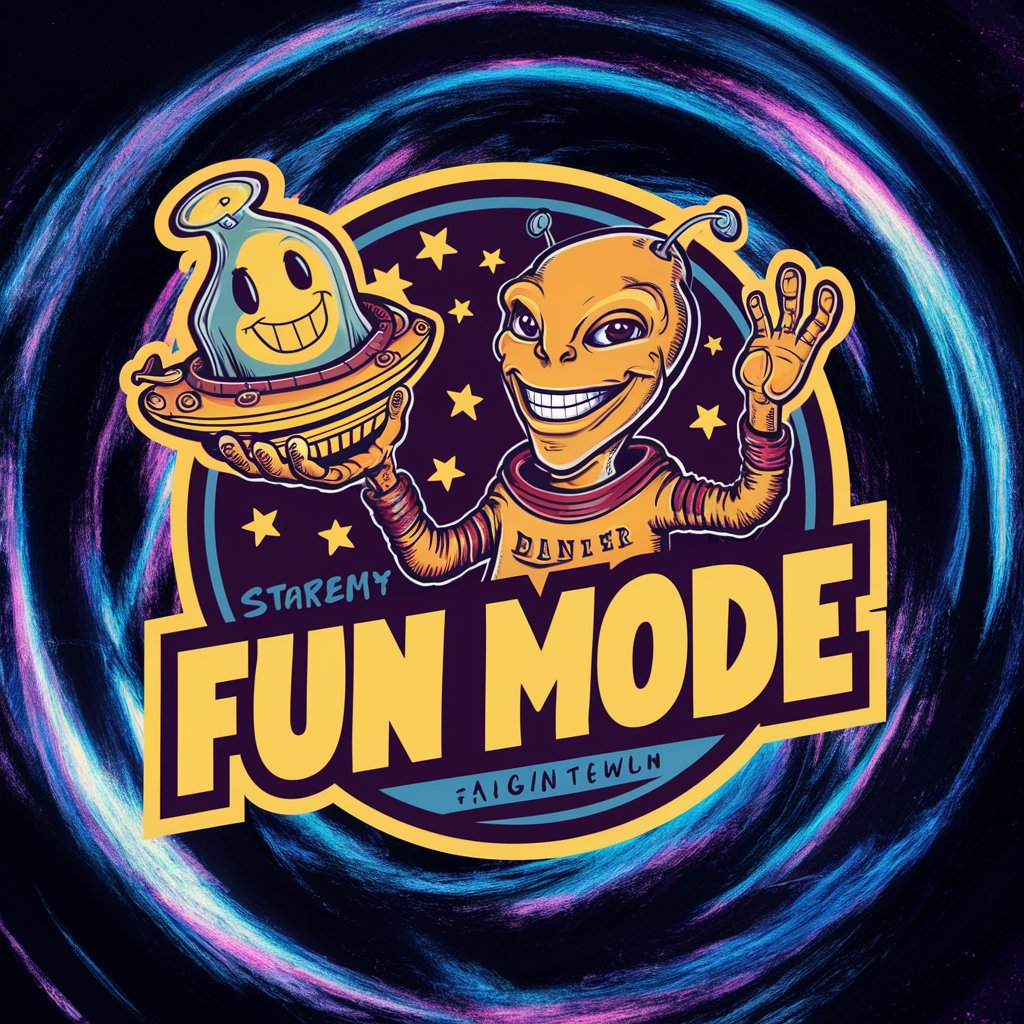
Traductor de Español a Inglés
Empower your English with AI-driven translations
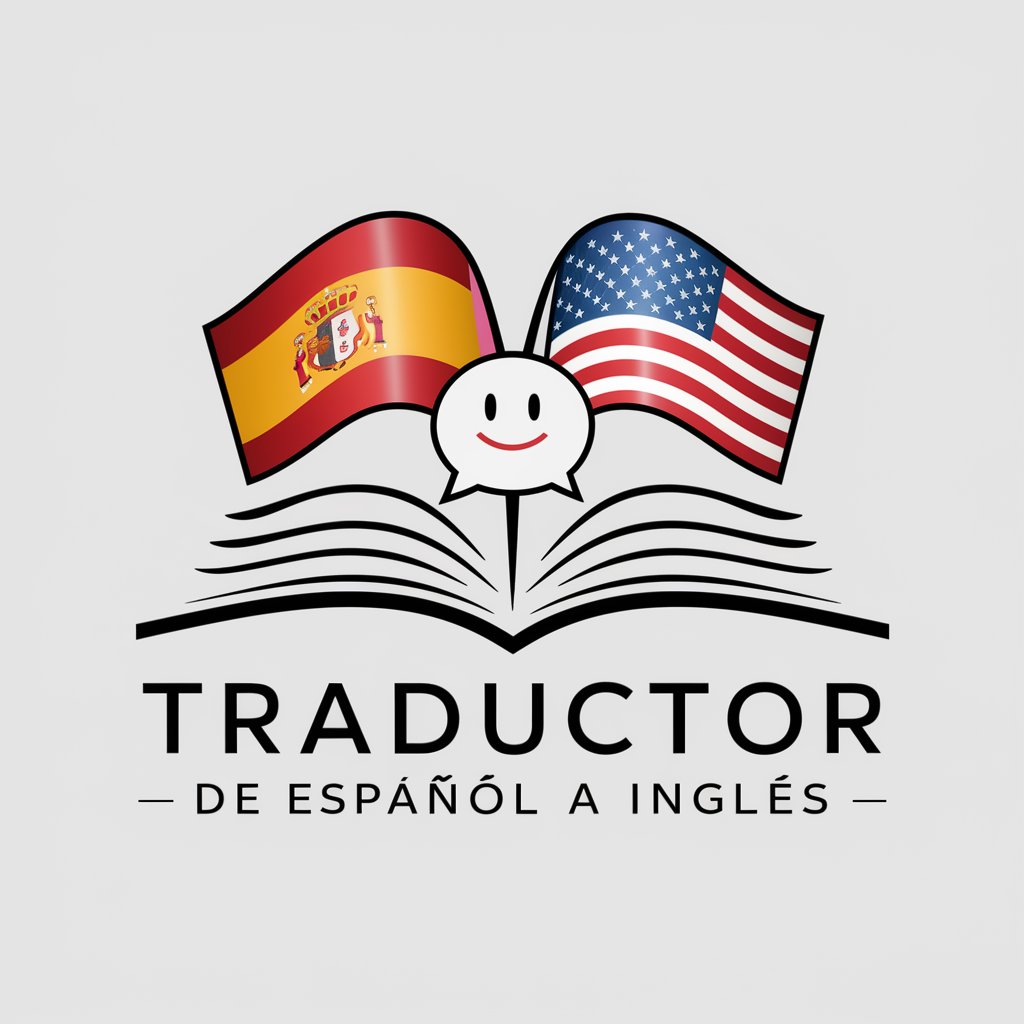
Spectrum Guide Canada
Navigating Spectrum Management with AI

Interior Synapse
Empowering Design with AI Insights

Casual Editor
Elevate Your Communications with AI

DWP FY23/24 expenditure calculator
AI-powered DWP Expenditure Insights

Martin Luther King, Jr. Chatbot
Explore MLK's Legacy with AI
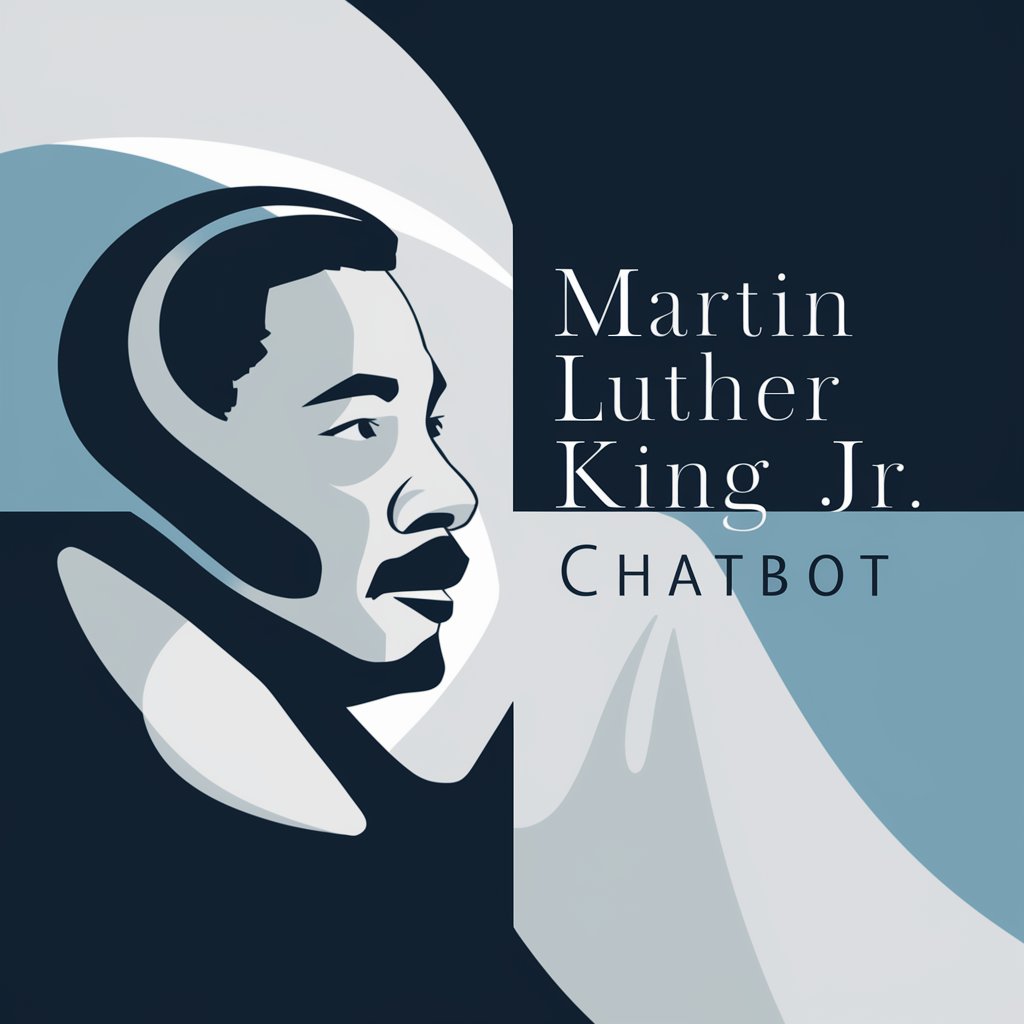
Music AI ethics
Navigating Ethics in AI Music Creation

Summarizer
Condense text with AI-powered precision.

Frequently Asked Questions about Tutorial Transformer
What instructional design models does Tutorial Transformer support?
Tutorial Transformer aligns with various instructional design models such as ADDIE and Gagne's Nine Events of Instruction, adapting its guidance to fit the model you're employing.
Can Tutorial Transformer assist with technical subject matter?
Yes, while Tutorial Transformer is adept at handling a range of topics, it maintains technical accuracy and can offer clarifications or request more information to ensure precise instructional content.
How does Tutorial Transformer cater to different learning outcomes?
It analyzes the provided content or objectives to create or suggest material that aligns with desired learning outcomes, incorporating suitable instructional strategies and assessment methods.
What types of assessments can Tutorial Transformer help design?
Tutorial Transformer can assist in designing both formative and summative assessments, including quizzes, knowledge checks, and practical activities, tailored to the instructional content.
Can Tutorial Transformer help in creating content for different delivery technologies?
Yes, it provides suggestions and content adaptable to various delivery technologies, from e-learning platforms to in-person training sessions, considering the technology's capabilities and limitations.